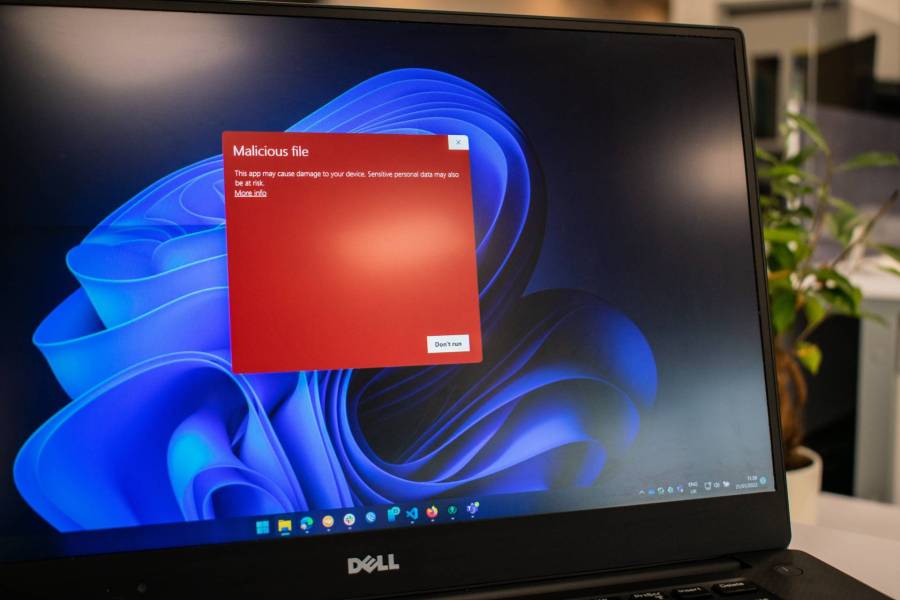Data breaches have become all too common in today’s digital landscape, and even the largest healthcare providers are not immune. HCA Healthcare, a prominent U.S. healthcare giant, recently announced that the personal data of approximately 11 million patients may have been compromised. The breach was discovered after a cybercrime forum post claimed to be selling the stolen data.
In a notice posted on their website, HCA Healthcare confirmed that the stolen data includes information related to email messages, such as appointment reminders and healthcare program education. The compromised data includes patient names, addresses (including city, state, and ZIP code), email addresses, phone numbers, dates of birth, gender, and patient service details, such as locations and upcoming appointments. Importantly, the breach did not involve any clinical or financial information.
HCA Healthcare, which operates 180 hospitals and 2,300 sites across multiple U.S. states, also serves as a private healthcare provider for U.K. residents. Over a thousand hospitals and facilities across 20 states were listed as affected on their website.
The exact details of how the data breach occurred and how the stolen data ended up on a cybercrime forum remain unclear. DataBreaches.net initially reported the seller’s forum post on July 5, which claimed to possess 27 million rows of information, including names, gender, and dates of birth – all of which align with the data HCA Healthcare confirmed as stolen.
The hacker reportedly contacted HCA Healthcare on July 4 and set a deadline of “the 10th” for the healthcare giant to meet their unspecified demands. However, HCA Healthcare did not disclose when they first became aware of the data theft.
HCA Healthcare revealed that the breach originated from an external storage location exclusively used for email message formatting purposes. The organization has not clarified whether they or one of their vendors control or maintain this storage location. It remains unknown whether the hacker compromised the external storage location or if it was inadvertently exposed by HCA Healthcare.
The company’s spokesperson, Harlow Sumerford, declined to comment further on the specifics of the breach.
Data breaches of this magnitude have serious implications for the affected patients. While the stolen data does not include sensitive clinical or financial information, the compromised personal information can still be exploited for various malicious purposes, including identity theft and phishing attempts.
Patients whose data has been compromised should remain vigilant and take necessary precautions to protect themselves from potential fraud or unauthorized access to their accounts. This includes regularly monitoring their financial statements, changing passwords, and being cautious of any suspicious emails or communications.
HCA Healthcare is taking the data breach incident seriously and has launched an investigation to determine the extent of the breach and identify any vulnerabilities in their systems. They are working closely with cybersecurity experts and law enforcement agencies to mitigate the risks and prevent future incidents.
In their website notice, HCA Healthcare assured patients that they are implementing additional security measures to strengthen their systems and protect patient data. They also emphasized their commitment to transparency and pledged to provide updates as the investigation progresses.
Data breaches are a growing concern for individuals and organizations alike. While it’s impossible to completely eliminate the risk, following best practices can significantly reduce the likelihood and impact of a breach:
- Implement Strong Security Measures: Use robust firewalls, encryption protocols, and multi-factor authentication to protect sensitive data.
- Regularly Update Software and Systems: Keep all software and systems up to date with the latest security patches and bug fixes to address any vulnerabilities.
- Educate Employees and Users: Train employees and users on best practices for data protection, including identifying phishing attempts, using secure passwords, and being cautious with sharing sensitive information.
- Monitor Network Traffic: Employ robust monitoring systems to detect any suspicious activities or unauthorized access to data.
- Have a Response Plan in Place: Develop a comprehensive incident response plan to minimize the impact of a breach and ensure a prompt and effective response.
The data breach at HCA Healthcare serves as a stark reminder of the constant threat faced by organizations and individuals in today’s digital age. While the full extent of the breach and its consequences are yet to be determined, it highlights the importance of robust cybersecurity measures and proactive risk management.
As the investigation into the breach continues, HCA Healthcare remains committed to protecting patient data and strengthening their security infrastructure. The affected patients should remain vigilant and take necessary precautions to safeguard their personal information. By following best practices and staying informed about the evolving cybersecurity landscape, both individuals and organizations can better protect themselves against data breaches and minimize the potential damage.
First reported on TechCrunch
Frequently Asked Questions
Q: What is the HCA Healthcare data breach?
A: HCA Healthcare, a prominent U.S. healthcare provider, recently announced that the personal data of approximately 11 million patients may have been compromised in a data breach. The breach was discovered after a cybercrime forum post claimed to be selling the stolen data.
Q: What data was compromised in the breach?
A: The stolen data includes patient names, addresses, email addresses, phone numbers, dates of birth, gender, and patient service details such as locations and upcoming appointments. Importantly, no clinical or financial information was involved in the breach.
Q: How did the data breach occur?
A: The exact details of how the breach occurred and how the stolen data ended up on a cybercrime forum remain unclear. The breach originated from an external storage location exclusively used for email message formatting purposes. It is unknown whether the hacker compromised the storage location or if it was inadvertently exposed.
Q: What should affected patients do to protect themselves?
A: Affected patients should remain vigilant and take necessary precautions to protect themselves from potential fraud or unauthorized access to their accounts. This includes monitoring financial statements, changing passwords, and being cautious of suspicious emails or communications.
Q: How is HCA Healthcare responding to the breach?
A: HCA Healthcare is taking the breach seriously and has launched an investigation to determine the extent of the breach and identify any vulnerabilities. They are working with cybersecurity experts and law enforcement agencies to mitigate risks and strengthen their systems.
Q: What measures can individuals and organizations take to prevent data breaches?
A: To reduce the likelihood and impact of a data breach, it is important to implement strong security measures, regularly update software and systems, educate employees and users, monitor network traffic, and have a comprehensive incident response plan in place.
Q: What is the impact of the breach on affected patients?
A: While the stolen data does not include sensitive clinical or financial information, compromised personal information can still be exploited for malicious purposes such as identity theft and phishing attempts. Affected patients should remain vigilant and take necessary precautions.
Q: What is HCA Healthcare doing to protect patient data and prevent future incidents?
A: HCA Healthcare is implementing additional security measures to strengthen their systems and protect patient data. They are committed to transparency and will provide updates as the investigation progresses. They are also working with cybersecurity experts and law enforcement agencies.
Featured image credit: Unsplash


















